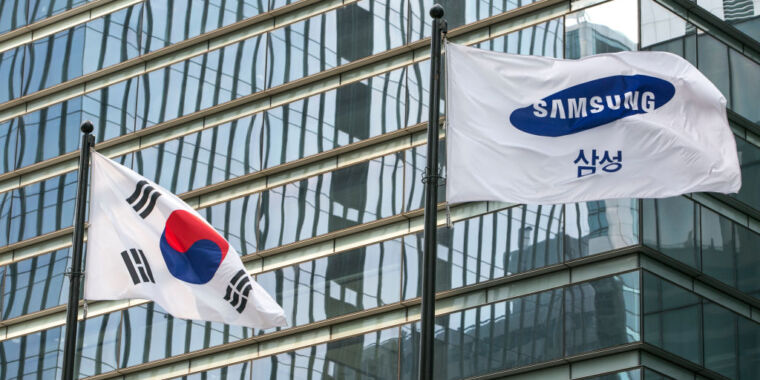Samsung Electronics workers are on strike. As The New York Times reports, Nationwide Samsung Electronics Union (NSEU) has about 28,000 members, or about one-fifth of Samsung’s workforce, walking out of the job on Friday. It’s Samsung’s first workers’ strike.
Specifically, the walkout is in Samsung’s chip division, which makes RAM, NAND flash chips, USB sticks and SD cards, Exynos processors, camera sensors, modems, NFC chips, and power and display controllers. Depending on how each quarter goes, Samsung is often the world’s largest chipmaker by revenue thanks to this division, and its parts are in products from a million different brands. It’s probably hard to find a tech product that doesn’t have some kind of Samsung chip in it.
As you might expect, the union wants higher pay. Samsung’s workers have gotten as much as 30 percent of their pay from bonuses, and there were no bonuses last year. UnionVP Lee Hyun Kuk told the Times that “it feels like we’ve taken a 30 percent pay cut.” The average pay for a union member is around $60,000 before bonuses.
This is officially a one-day strike, so it’s not expected to hurt Samsung’s output much. For now, this is more about a show of strength by the union in the hopes that Samsung will come to the negotiating table. Samsung reported a profit of $1.4 billion from its chip division in Q1 this year.
If this isn’t resolved, what exactly would happen to the tech industry during a long-term Samsung strike is anyone’s guess. Because of the ubiquity of Samsung’s components, every tech hardware company would have to deal with this somewhat. Samsung has a lot of competitors in each market, though. For instance, for memory it’s always battling SK Hynix and Micron, and a lot of manufacturers will use parts from the three companies interchangeably. Maybe Samsung’s competitors could just pick up the slack. Samsung has never been on strike before, so we’re in uncharted territory.



I don’t think it’s realistic for them to keep it secret that it’s only going to be one day. Better to announce it and make sure nobody can spin it as them giving up after a day.
And the reasons for a one-day strike in the first place are to convince the company that you’re capable of a longer strike, and to convince your members that they’re capable of a longer strike.